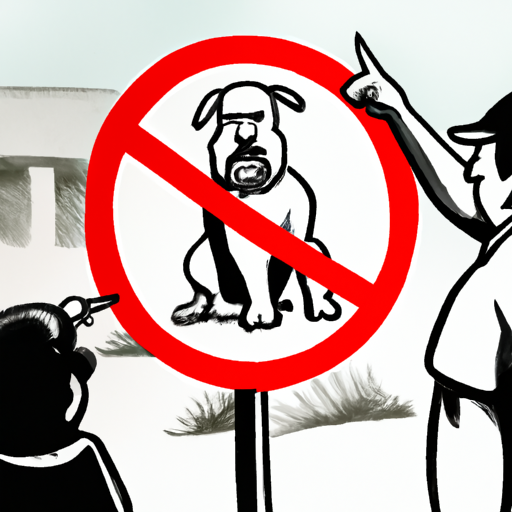Introduction
You’re a dedicated caregiver, you love your pets, and you want what’s best for them. There are times, however, when your dog’s behavior might not be up to par. They bark excessively, chew on furniture, or have accidents in the house. In your frustration, you might wonder, “Is it okay to hit your dog?” Let’s explore this question in detail.
Understanding Dog Behavior
Firstly, you need to understand that dogs are not humans. They don’t comprehend the world the same way we do. Here are a few key points:
- Dogs live in the moment: They react to immediate stimuli and can’t plan for the future.
- Dogs learn by association: They link actions to consequences, but these links aren’t always logical to us.
- Dogs communicate differently: They rely more on body language than verbal cues.
The Short Answer
So, is it okay to hit your dog? The short answer is, no. Physical punishment can lead to several negative outcomes:
- Fear and mistrust
- Aggression
- Behavioral problems
- Physical harm
The Long Answer
Fear and Mistrust
Hitting your dog can make them fear you. They may not understand why they’re being hit and start to associate you with pain and fear. This can damage your relationship with your pet and cause behavioral problems.
Aggression
Physical punishment can lead to aggression. Your dog might start to see you as a threat and react defensively. This can escalate to biting or other forms of aggression.
Behavioral Problems
Hitting your dog doesn’t teach them what behavior is desired. Instead, they learn to avoid the punishment. This can lead to more behavioral problems, as they try to avoid being hit rather than learning the correct behavior.
Physical Harm
Physical punishment can also cause physical harm to your pet. Dogs are sensitive creatures, and hitting them can lead to injury or long-term physical issues.
Alternatives to Physical Punishment
Now that you understand the consequences of hitting your dog, let’s explore some alternatives:
- Reward-based training: Reward your dog for good behavior. This can be treats, praise, or anything your dog enjoys.
- Time-outs: If your dog misbehaves, remove them from the situation for a short time.
- Professional help: If your dog’s behavior is beyond your control, consider seeking help from a professional dog trainer or behaviorist.
The Table of Consequences
Here is a summary of the potential consequences of hitting your dog:
| Consequence | Description |
|---|---|
| Fear and mistrust | The dog starts associating you with pain and fear, damaging your relationship. |
| Aggression | The dog views you as a threat and can react defensively. |
| Behavioral problems | The dog learns to avoid punishment, which can lead to more behavioral issues. |
| Physical harm | Hitting can cause physical injury or long-term physical issues. |
FAQ
Q: My dog misbehaves often. What should I do?
A: Instead of resorting to physical punishment, try reward-based training or time-outs. If the behavior persists, consider seeking professional help.
Q: My dog is aggressive towards me. Did I do something wrong?
A: Aggression can be a response to fear or threat. If you have used physical punishment, this might be the cause. It’s best to seek professional help in such cases.
Q: I hit my dog once. Will it have lasting effects?
A: It can depend on the dog, but it’s best to avoid physical punishment altogether. Apologize to your dog, ensure them you won’t hurt them again, and focus on positive reinforcement.
Q: How can I apologize to my dog?
A: Dogs might not understand verbal apologies, but they respond to your tone and body language. Be gentle, kind, and show them love.
Conclusion
As a caregiver, your role is to provide a safe, loving environment for your pet. Hitting your dog is never the answer. Instead, focus on understanding their behavior, positive reinforcement, and seeking professional help when needed. Remember, your dog loves you unconditionally and deserves the same in return.



